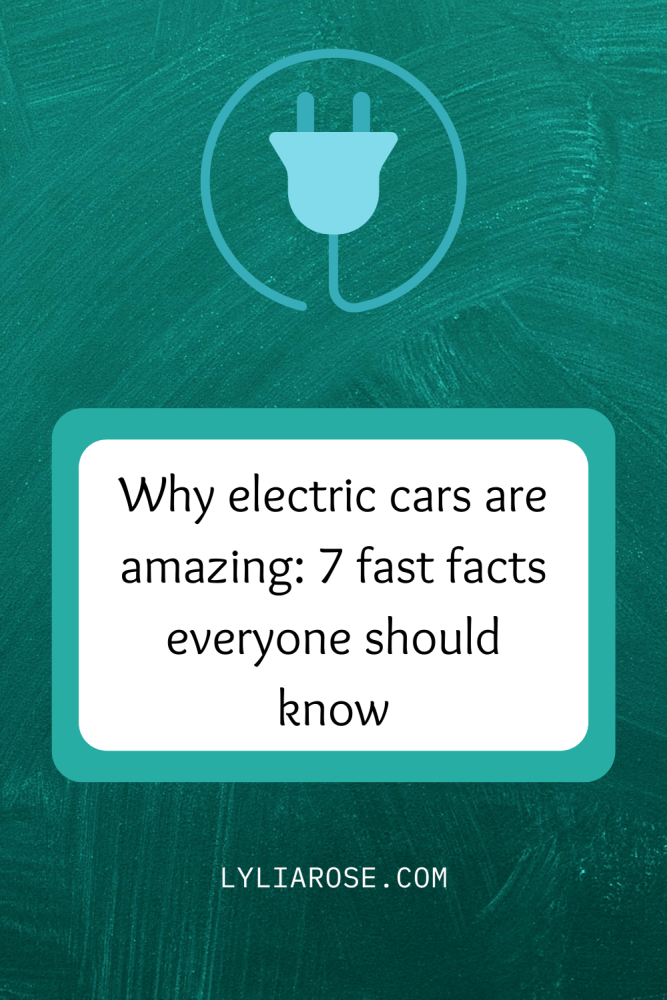Why electric cars are amazing: 7 fast facts everyone should know
Posted on
Electric cars are becoming increasingly popular, with more charging stations popping up in cities and more brands dominating the market. There is way more to them besides being more environmentally friendly, and some of the facts are surprising!

Purchasing a car can be costly and challenging. It may be worth looking at car lease comparison deals to find one that works for you; that way, you can still have fun on the road with minimal stress!
Seven fast facts
Electric vehicles date back to the 1800s
Electric vehicles are not this new high-tech advanced innovation. Surprisingly, the earliest electric vehicles date all the way back to 1837, designed and built by a Scottish man by the name of Robert Anderson. This means that electric vehicles were around even before petrol-powered vehicles.
They require less maintenance
The powertrain of an electric vehicle is not as complex as it is in a diesel or petrol engine. This is because the powertrain is not made up of too many moving parts. The battery and electric motor do not require much maintenance.
Electric vehicles do not have spark plugs, oil, or fuel filters to change. The brake pads and discs also tend to last longer as there is less traditional friction on an electric vehicle's braking components due to the EV's regenerative braking system. This can be cost-effective and reduce car costs over time.
Most electric vehicles run on very specific tyres
Electric vehicles use very different tyres compared to their diesel or petrol-powered counterparts. This is because battery-powered cars need EV-specific rubber.
The tyres made for electric vehicles require specific compounds and tread patterns, this is so that the car can handle the instant torque delivery from the electric motor. EV-specific tyres also have a much lower rolling resistance; this is necessary for increasing range.
The load-bearing capacity on tyres for electric vehicles is higher due to the extra weight that the battery packs add.
More efficient
Compared to internal combustion engine vehicles, electric cars have very low energy conversion losses. The process of converting chemical energy from fossil fuel into motive force through combustion does tend to lose a lot of energy.
However, the whole process of converting the energy found in the EV battery is around three times more efficient.
Decelerating boosts range
Strangely enough, decelerating tends to extend the electric vehicle's range. This is because of regenerative braking. Regenerative braking is essentially a recovery system that redirects any lost kinetic energy.
This lost kinetic energy is redirected to the battery pack during the deceleration phases - this may be when you touch the brakes or lift your foot off the accelerator. Slowing the car down charges the battery, which then boosts the overall range.
This is why electric vehicles are perfect in places where there is tons of stop-start driving.
There are health benefits
The exhausts on internal combustion engine vehicles emit many harmful gases, like lead to sulfur oxides. All of these gases are extremely harmful to not only the environment but also to us humans.
These gases can cause various diseases, from something as small as breathing complications to something as significant as lung cancer. With more electric vehicles on the roads, we won't be as exposed to all of these harmful gases.
Air pollutants from diesel and gas-powered engines can cause bronchitis, certain heart problems, asthma, cancer, and even premature death in some cases.
They are great for the environment
Electric cars do not get their energy from fuel-powered engines. Instead, they get their energy from battery packs that are powered by electricity. This means that electric vehicles do not produce any gas, reducing emissions and reducing pollution.
The air will also become cleaner with more electric cars on the roads as there will be less smog dye to lower smoke levels. EVs promote renewable energy and reduce greenhouse gas emissions.
Types of EVs and how they work
There are three main types of EVs: Hybrid-Electric Vehicles (HEVs), Plug-In Hybrid-Electric Vehicles (PHEVs), and Battery Electric Vehicles (BEVs). A BEV is an all-electric car and is definitely the way to go!
A battery pack fully powers an electric vehicle, and you will need to plug it in to charge. Luckily charging stations are becoming more accessible in cities, making it much easier to own an electric vehicle!
Final Thoughts
Electric vehicles are excellent. They aim to save the planet while still having the same functions as engine-powered cars. In the long run, the car will save you money and time while creating a healthier planet for you and your loved ones!
